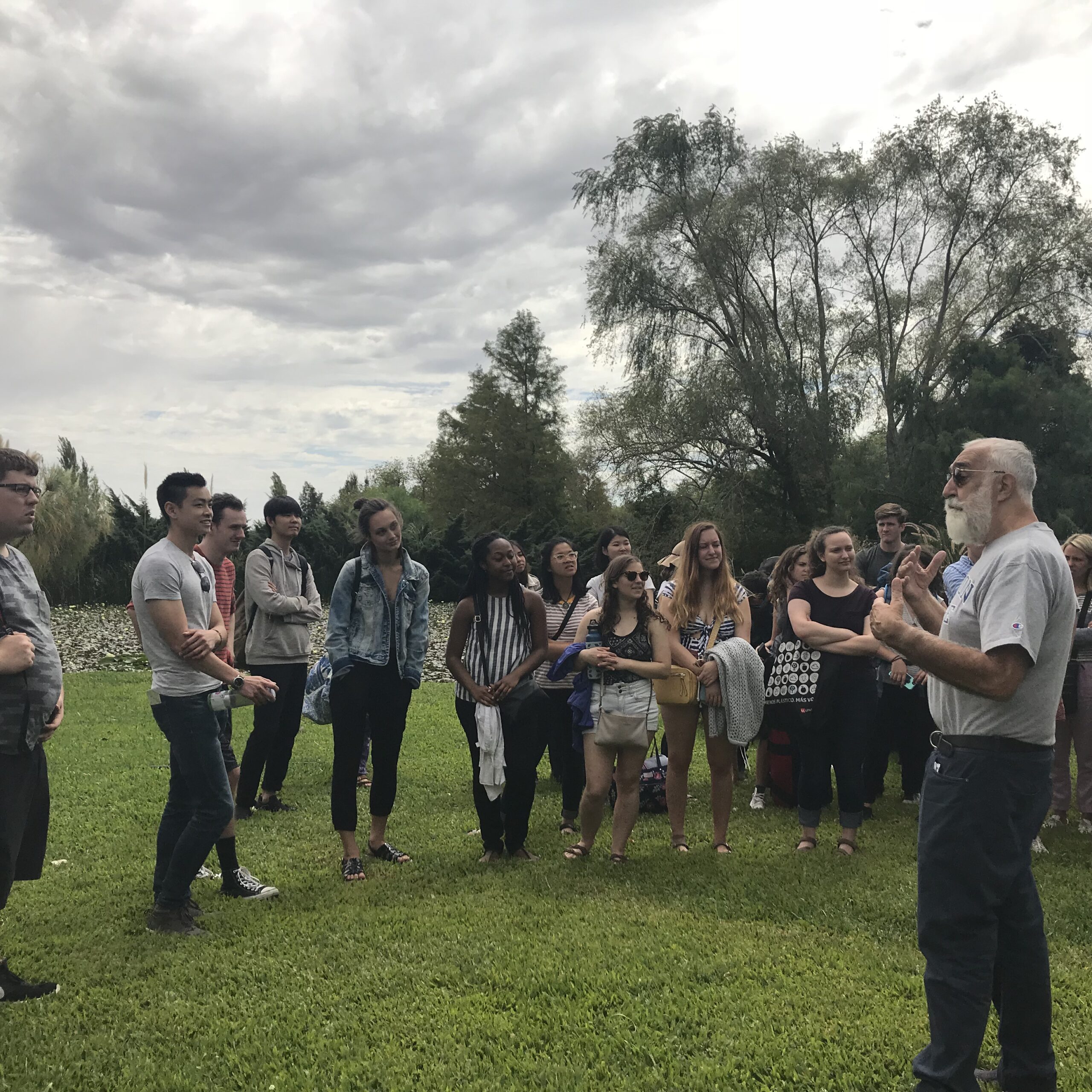Navigating a City Proud of their European Heritage as a Student of Color: Part Two


As discussed in part one of this series, Buenos Aires is a city whose citizens pride themselves on their European heritage, resulting a city-native identity that relies on being white. As a result, students who don’t pass as white may be quickly labeled as “other.” Students I spoke with who identify as East Asian or Black have noticed getting stares in the street or have been addressed as the wrong ethnicity, as it is common practice in Buenos Aires to address foreigners by what their apparent nationality. However all of these students were agreed that while this was noticeably different than what they were used to in the United States, it did not feel hostile so much as a cultural difference. This has not been the case for all IFSA students. When I spoke with students who identified as Mexican or Central American, they reported that they had experienced blatantly racist and exclusionary behavior.
Experiences of Mistreatment as a Result of Race in Buenos Aires
Of the six students I spoke to, only the two of Latin American descent and of darker complexions seem to have experienced aggressive exclusion or mistreatment as a result of their race. One student in particular, a male student that identifies himself as Latino and Mexican, had a few very specific examples of how racism has colored his study abroad experience.
One of Buenos Aires’s claims to fame is the city’s popular habit of staying out late and dancing all night at a variety of clubs, or as locals call them, “boliches.” The student mentioned above reported an instance wherein he was being denied access to a club for, what he interpreted to be, his darker skin. “I wasn’t let in along with other friends at a boliche…security denied me access. I spoke fluent Spanish and showed my passport and nothing. Yet when the white people behind me went, the security let them pass without showing any sort of ID,” he told me. “My friend argued with them and they got very frustrated. Eventually we just left and went somewhere else.” The same student reported instances of being followed in stores and questioned by security guards when trying to enter office buildings. Another Latino IFSA student observed similar behavior when entering office buildings for classes or meetings: “They always ask what I’m there for even though it’s the same class every week.”
One student noted, “Sometimes people hold their bags tighter or move them when I approach to ask a question or for directions. But I don’t really care to be honest,” he laughed, “I’ve experienced worse in the U.S. so I don’t really care anymore.”
Why does this happen in Buenos Aires?
Although I’m certainly not an expert, the IFSA staff gave all its students some general background knowledge about the social, cultural and political history of Buenos Aires during orientation. Not unlike most countries, in Argentina there is a negative stigma surrounding immigrants from certain countries and regions. In Buenos Aires, a lot of the times this adversity targets people who appear to be Latino and have darker complexions. From the observations given by IFSA students of color it appears that some Argentines tend to “other” people of different skin color. Similar to what we see regarding treatment of Mexican immigrants in the United States today, while this stigma partially results from economic instability and perceptions of class in the country, it is also a result of generations of “othering” Argentines and immigrants of darker complexions to preserve this Italian/Spanish identity they’re so proud of.
What’s more, the research I am doing at my internship through IFSA at a Center for Human Rights focuses on the recent securitization of immigration and militarization of borders in Argentina. This is also a popular and rapidly developing policy in the United States today and its negative effects on the perceptions of Latin American immigrants is visible in both countries. Thus, while disappointing, this type of racism is a typical product of the factors listed above.
How Does it Affect a Student’s Study Abroad Experience?
Despite all these reports of how students of color have experienced Buenos Aires differently from students who pass as white or European, every single IFSA student I spoke with said that given the opportunity, it would not change where they decided to study abroad.
What appears to have helped the most when experiencing racism, be it casual or hostile, is having a support system where students can speak openly and receive advice. As mentioned in part one, all students had been invited to have dinner at the IFSA program director’s house if they identified as a racial, ethnic, religious, or sexual minority. While some students found this to be a helpful and comfortable platform, other students preferred to simply speak with old IFSA students that identified similarly to them. In one instance, being connected to a network of past IFSA students that identified as Black helped connect a current IFSA student to a community of women of African descent living in the city. She told me, “It’s been really helpful, actually. They share tips in a group message like where to find good braiders and what stores sell good hair and skin products.”
Overall, while racial adversity is apparent in Buenos Aires, the students I spoke with have had a positive study abroad experience through the IFSA-Butler Argentine Universities Program thanks to support from IFSA staff and fellow students. Of course, as I’ve seen both at home and abroad, we can always make strides to ensure students of all racial and ethnic backgrounds feel comfortable.
Alex Kenoian is an International Relations & Computer Science double major at Mount Holyoke College and studies abroad with IFSAat the Argentine Universities Program in Buenos Aires in Spring 2018. She is an International Correspondent for IFSA through the Work-To-Study Program.